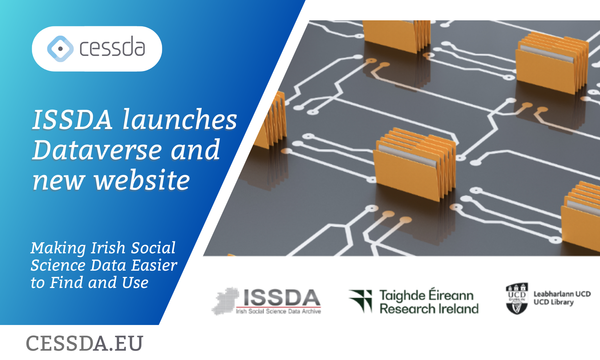News
News from CESSDA

CESSDA is hiring a Technical Officer
The Technical Officer assists the Head of IT in building, maintaining, and documenting the IT infrastructure that supports the tools and services provided by the European Research Infrastructure. The officer will be responsible for ensuring the smooth operation of IT systems, resolving technical issues, and providing technical assistance to staff.

Two New Reports on Europe’s Younger Generations Published by Infra4NextGen
The Infra4NextGen project has released the first two in a series of five data summaries analysing Europe’s younger generations, drawing on insights from major cross-national surveys.

CRONOS-3 data published
The third wave of data from the CROss-National Online Survey (CRONOS-3) is now available through the ESS Data Portal.

First steps towards a future Social Sciences and Humanities Competence Centre
CESSDA ERIC, along with other ERICs and Service Providers, have begun the work on creating a SSH Competence Centre.

From ambitious goals to impressive results: CESSDA in FAIR IMPACT
CESSDA contributed to expand FAIR solutions across the EOSC (European Open Science Cloud) by joining the FAIR IMPACT project, running from June 2022 to May 2025, and funded by the European Commission under the Horizon Europe programme. The project, coordinated by DANS and supported by 27 additional partners from 11 countries, improved reproducibility and public trust in science, transforming the way researchers share and exploit research outputs. CESSDA joined the project with partners from the UK (UKDS) and Norway (Sikt and the CESSDA Main Office).

ISSDA Launches Dataverse and New Website
In July Irish Social Science Data Archive (ISSDA), based in UCD Library, launched its new data repository ISSDA Dataverse, a modern platform that significantly enhances how users access, discover, and work with archived social science data.